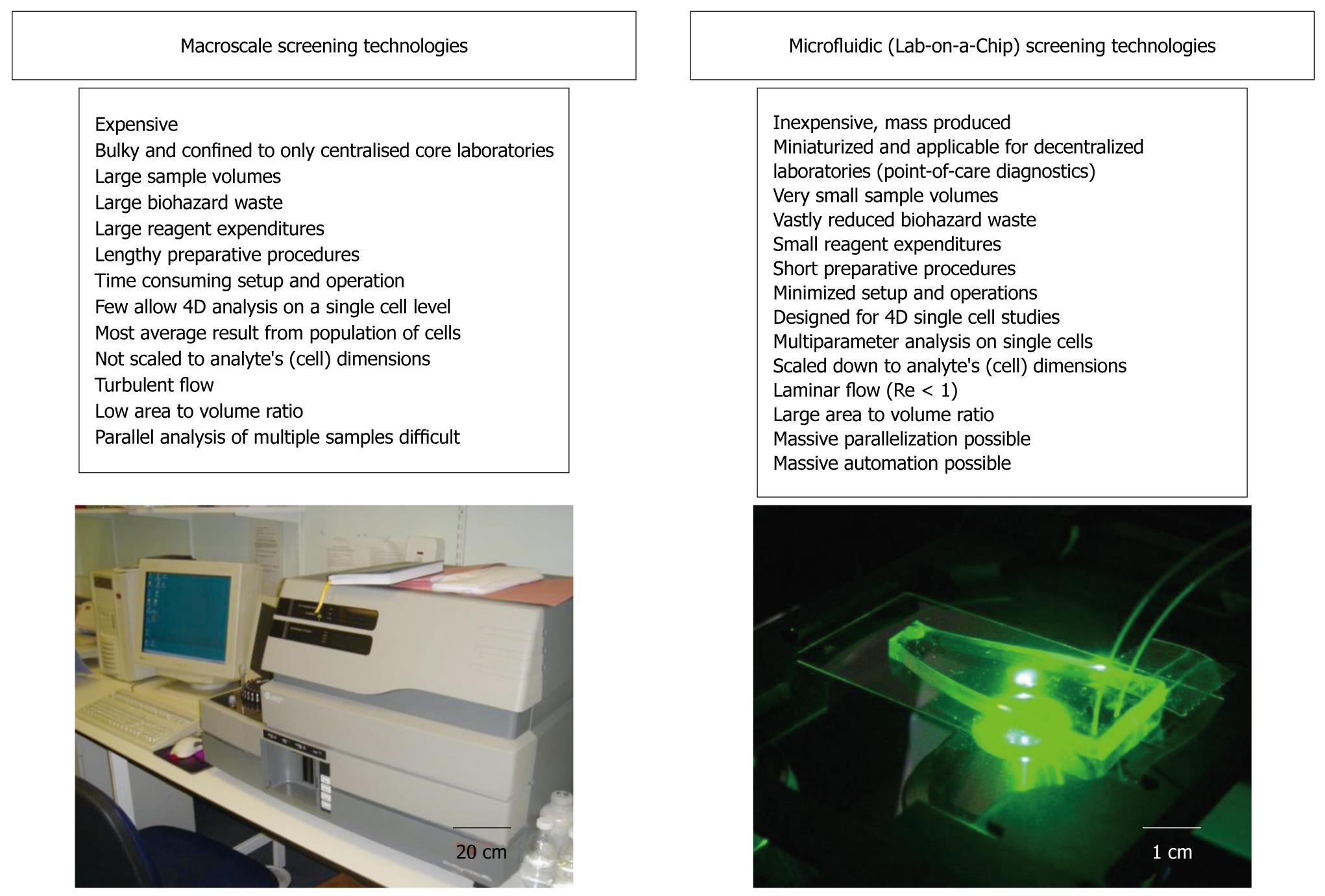Copyright
©2010 Baishideng Publishing Group Co.
World J Clin Oncol. Nov 10, 2010; 1(1): 18-23
Published online Nov 10, 2010. doi: 10.5306/wjco.v1.i1.18
Published online Nov 10, 2010. doi: 10.5306/wjco.v1.i1.18
Figure 3 Comparison between conventional (macroscale) and microfluidic (Lab-on-a-Chip) technologies for cell-based assays.
The advent of microfluidics and its integration into design micro-total analysis systems (μTAS) and Lab-on-a-Chip (LOC) devices is one of the most promising avenues to address the inherent complexity of cellular systems with massive experimental parallelization and analysis on a single cell level. LOC technologies promise greatly reduced equipment costs, simplified operation, increased sensitivity and throughput by implementing parallel processing principles and a vast miniaturized of on-chip components. Only low cell numbers and operational reagent volumes are required for LOC technology. It, in turn, opens up new prospects for high-throughput and high-content screening of anti-cancer drugs on patient derived specimens.
- Citation: Wlodkowic D, Darzynkiewicz Z. Microfluidics: Emerging prospects for anti-cancer drug screening. World J Clin Oncol 2010; 1(1): 18-23
- URL: https://www.wjgnet.com/2218-4333/full/v1/i1/18.htm
- DOI: https://dx.doi.org/10.5306/wjco.v1.i1.18









